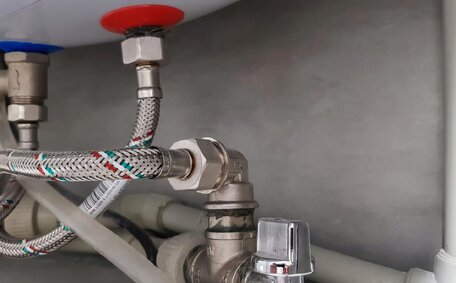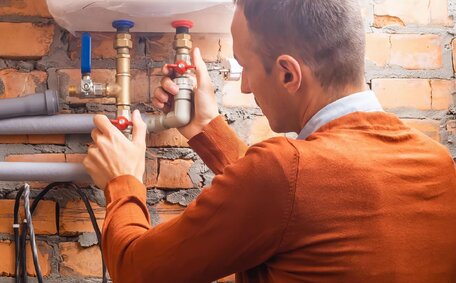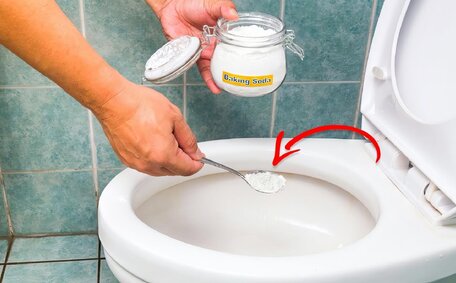Why is my gas bill so high?
There are several common reasons why your gas bill may seem much higher than expected:
- Using more natural gas due to colder weather which necessitates extra heating. Each degree colder can increase your gas bill, impacting your energy expenses.
- Gas rates can vary seasonally based on demand and supply costs. Check the per unit rates to verify you’re being charged fairly for your gas usage.
- A faulty gas meter can incorrectly inflate what you’re billed for. If you suspect inaccuracies, request a meter accuracy test from your supplier.
- Gas leaks, though rare, can cause your gas bill to unexpectedly increase due to significant waste. Inspect pipes and listen/smell for leaks, or get a professional leak detection service.
- Bigger households navigating around your home naturally use more gas to heat water and rooms. Take house size and occupancy into account if you notice an increase in your gas bill.
To better understand why your usage has changed and the reasons behind the spike in your current bill, start by checking your meter read usage history alongside your bill details. We can also evaluate your appliances, insulation and systems to suggest savings and ensure your bill based on accurate gas usage. Contact us to learn more and find ways to reduce your high energy costs.
Verify your gas meter reading for accuracy
Monitoring your own meter is essential, especially if you question whether your bill magnifies your actual consumption, possibly resulting in an unexpectedly substantial bill for your energy. This ensures that billing corresponds to actual consumption, not estimated figures.
To verify your gas metre reading:
- Ensure you have access to your meter, typically housed in a metal box by the gas line entry point.
- Open the box to locate the meter number and view the dials or digital display to assess cubic metres consumed.
- Record the complete meter reading, including decimals, to ensure the accuracy of your reading. Write down the date and time too, to create an accurate log about your gas usage.
- What do the readings on your latest gas bill indicate? Compare them to ascertain the possible reasons highlighted in the metre readings section. The section your bill dedicated to meter readings should show previous and current figures.
- If readings don’t match within a reasonable margin, Contact your retailer promptly to address any discrepancies in readings. Occasionally, it happens that your meter isn’t functioning properly.
Accurate meter readings are essential to avoid billing errors that affect many households. If you think your meter readings look off, get in touch early. We’re available to advise on energy cost management; simply reach out for assistance.
Check for gas leaks throughout your home
Gas leaks, though uncommon, can be the culprits behind a gas bill high spike in your energy expenses and pose safety risks. It’s crucial to periodically check so you can get a sense of any potential leaks. Signs include:
- A strong rotten egg smell near appliances or pipes.
- Unusual hissing sounds around appliances.
- Browning vegetation in one area outside.
- Condensation inside gas appliances like heaters or ovens.
- Flames that burn more yellow than normal on stoves.
If you suspect a gas leak, Evacuate and call emergency services or the energy water ombudsman for advice. We’ll perform a certified leak test on your entire gas system with advanced detection technology. If a leak exists, we’ll repair it promptly and provide gas safety advice tailored to your household.
Don’t hesitate to reach out about potential leaks or if you’re finding it tough to manage your finances and are struggling to pay your high bill. Detecting issues early can prevent a surge in your energy bills, including electricity. We can help as your local experts for all gas services - installation, maintenance and repairs.
Upgrade appliances and fixtures for energy efficiency
Upgrading to energy-efficient gas appliances can lead to significant reductions in your gas bills over time. Replace older, inefficient models, as they often consume more gas than energy-efficient counterparts.
When replacing appliances, look for energy star rated models which are proven to use less gas. For instance, a 5-star gas hot water system can use 30-50% less gas compared to a 3-star system. Installing zoned space heating rather than heating your whole home can also save on gas.
Before upgrading, we advise an audit of your gas system by our North Epping plumbers. We can assess your current appliances and pipework and suggest cost-effective replacements to reduce your gas per usage.
With the right upgrades, most homes can save 10-30% on gas bills annually. Energy-efficient appliances can pay for themselves with savings over a 5-10 year period. We’re happy to provide quotes and advice on maximising gas efficiency.
Improve your home’s insulation
Ensuring sufficient insulation is key to maintaining a cosy atmosphere and cost-effectiveness in your gas electricity bills. Poor insulation in ceilings, walls, floors, windows, and doors can lead to heat loss, energy waste, and increased heating costs.
There are a few easy ways to identify and improve insulation gaps:
- In the roof cavity, insulation should be evenly spread, with no bald patches or sagging. Top up low areas with insulation batts.
- Wall insulation is trickier to check, but exposed cold spots and draughts can indicate issues. Consider re-insulating walls.
- Apply weather stripping around windows doors to seal air leaks and improve your home’s energy efficiency. Quality seals last for years.
- On floors above garages or overhangs, insulate underneath to prevent heat loss.
We recommend getting a thermographic camera inspection, which shows missing insulation as hot or cold spots, to better manage your bills. Our North Epping plumbers can also use tailored insulation solutions to suit your home. Proper insulation can save your household 15-30% on gas heating costs during the winter months.
Adjust thermostat temperature settings
Optimal thermostat settings can significantly lower gas consumption and bills. As a general rule, each degree you lower the thermostat corresponds to about 1-3% in energy savings. Here are some tips:
- Set the thermostat to 20C during the day and 18C overnight for comfortable savings against high energy usage.
- Consider using a smart meter or programmable thermostat to automatically adjust temperatures for optimal energy use.
- Adopt zone heating to heat only the areas in use, closing doors and vents to unused rooms to save energy.
- Make small adjustments like lowering temperatures by 1-2 degrees and always check your thermostat for efficiency. Layers of clothing can offset slightly cooler air.
- Check that your thermostat is accurately calibrating temperature. If its malfunctioning, replace it.
Get in touch if you require assistance adjusting your thermostat settings to reduce high electricity gas costs or if you want quotes on new energy efficient models. Even minor thermostat tweaks often lead to noticeable ways to save money.
Explore payment assistance programs
Should you find yourself struggling to cover unexpectedly high gas bills, there are payment assistance programmes available that provide financial help. LIHEAP is a key programme offering bill payment assistance, discounted rates, and heating repair grants for eligible households.
Eligibility for LIHEAP aid usually requires a household income below 150% of the federal poverty level, as shown in your account statements. Apply through your state or local social services office. Bring income documentation like pay stubs when applying.
Other potential assistance options include:
- State emergency relief funds - Provide crisis bill assistance
- Utility company programmes - Offer discounted rates or flexible payment plans
- Local charities and nonprofits - May supply one-time bill grants
You can find out how to explore all available assistance options if you’re struggling to pay high gas expenses. We’re also here to get help at North Epping Plumbing - call us to discuss paying your gas bills and usage.
Change usage habits to conserve gas
Small tweaks in your gas usage habits can lead to considerable savings over time. Here are some no-cost steps to reduce consumption:
- Lower your heating system’s temperature to 50-60°C to reduce your heating bill. Each 10° lower can save up to 10% gas.
- Run full loads in the clothes dryer and air-dry when possible to economize and manage bills better.
- Wash clothes in cold water instead of hot water loads.
- Turn off appliances like ovens and gas heaters when not in use.
- Seal gaps around windows and doors to reduce heat loss, decreasing energy loss.
- Take shorter showers to conserve gas water usage.
Simple habit changes can minimise your energy use, like wearing warmer clothes indoors during winter and consolidating cooking to use oven heat efficiently. Over time, even minor usage adjustments make a real difference to consumption and bills.
Compare energy plans to find savings
Comparing energy plans from time to time, especially if you review all plans during an energy crisis, potentially saving you money. There may be cheaper plans available from your current or other suppliers that offer better rates or pricing structures.
Here are some tips for comparing and switching plans that won’t increase your expenses:
- Review your recent bills and note how much gas per month you’re using in cubic metres or therms.
- Compare your tariff by evaluating your plan’s unit rates against those of other providers or on comparison websites.
- Calculate estimated costs based on your usage. A lower rate plan could save over $100-200 per year.
- Check if discounts, sign-up bonuses or if your solar feed-in incentives apply.
- Read the fine print for terms on fixed/variable pricing, exit fees and other conditions.
- If a more suitable plan presents itself, implore to call your energy supplier to switch or get quotes including solar energy incentives on a plan change.
Our team can review your gas system and usage, suggesting the most cost-effective energy plans. Call us anytime to discuss ways to save on your gas bills moving forward.






